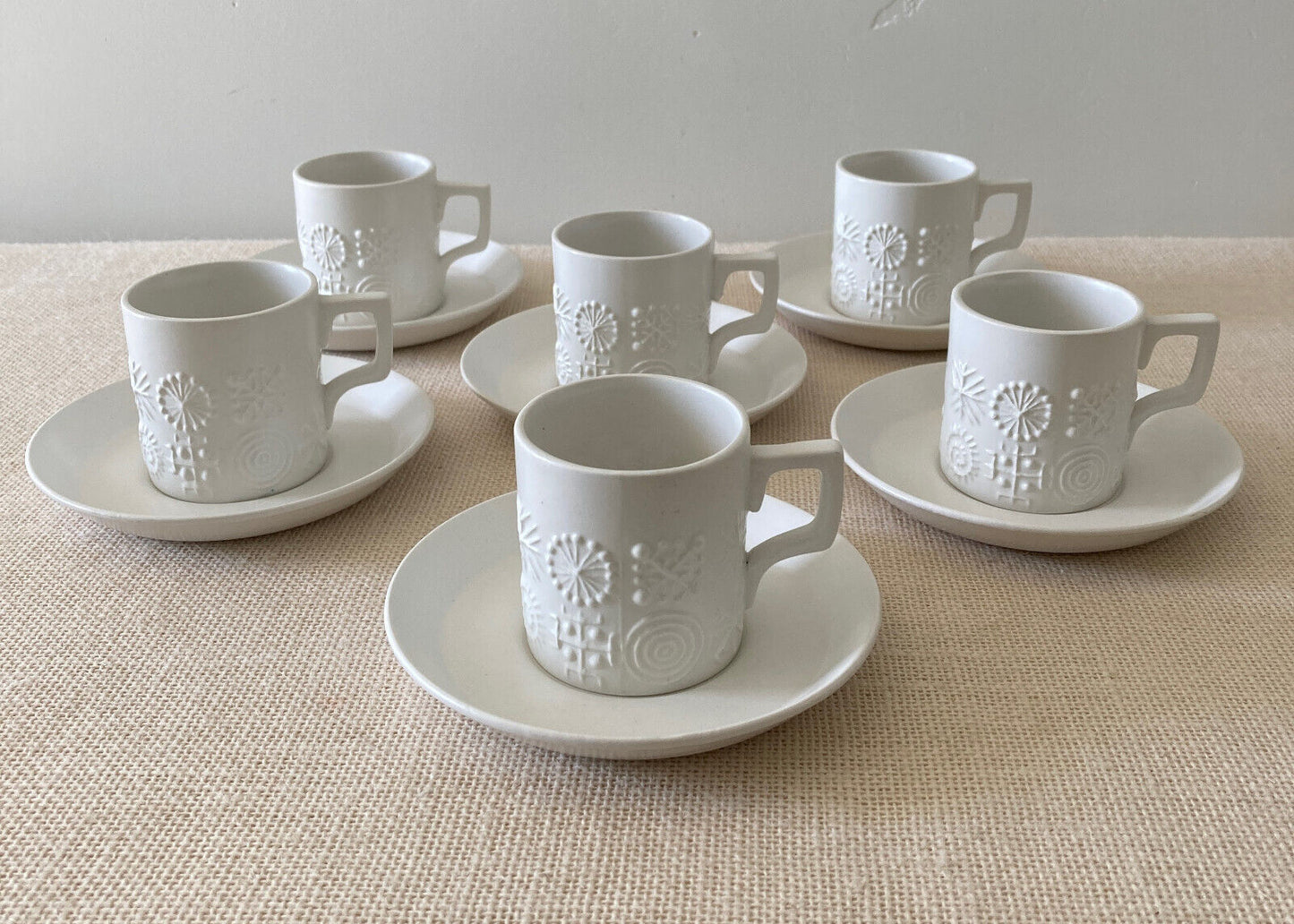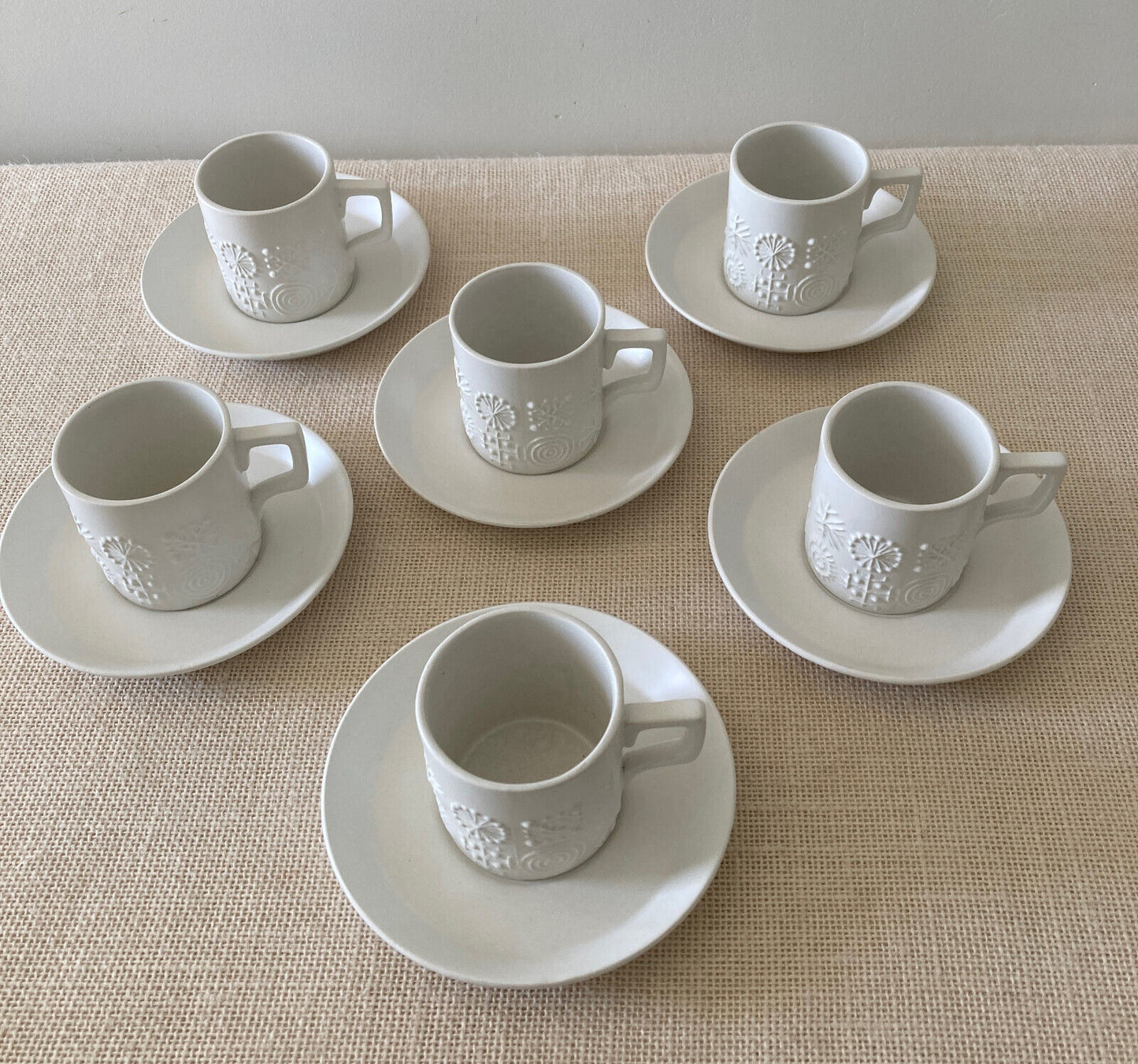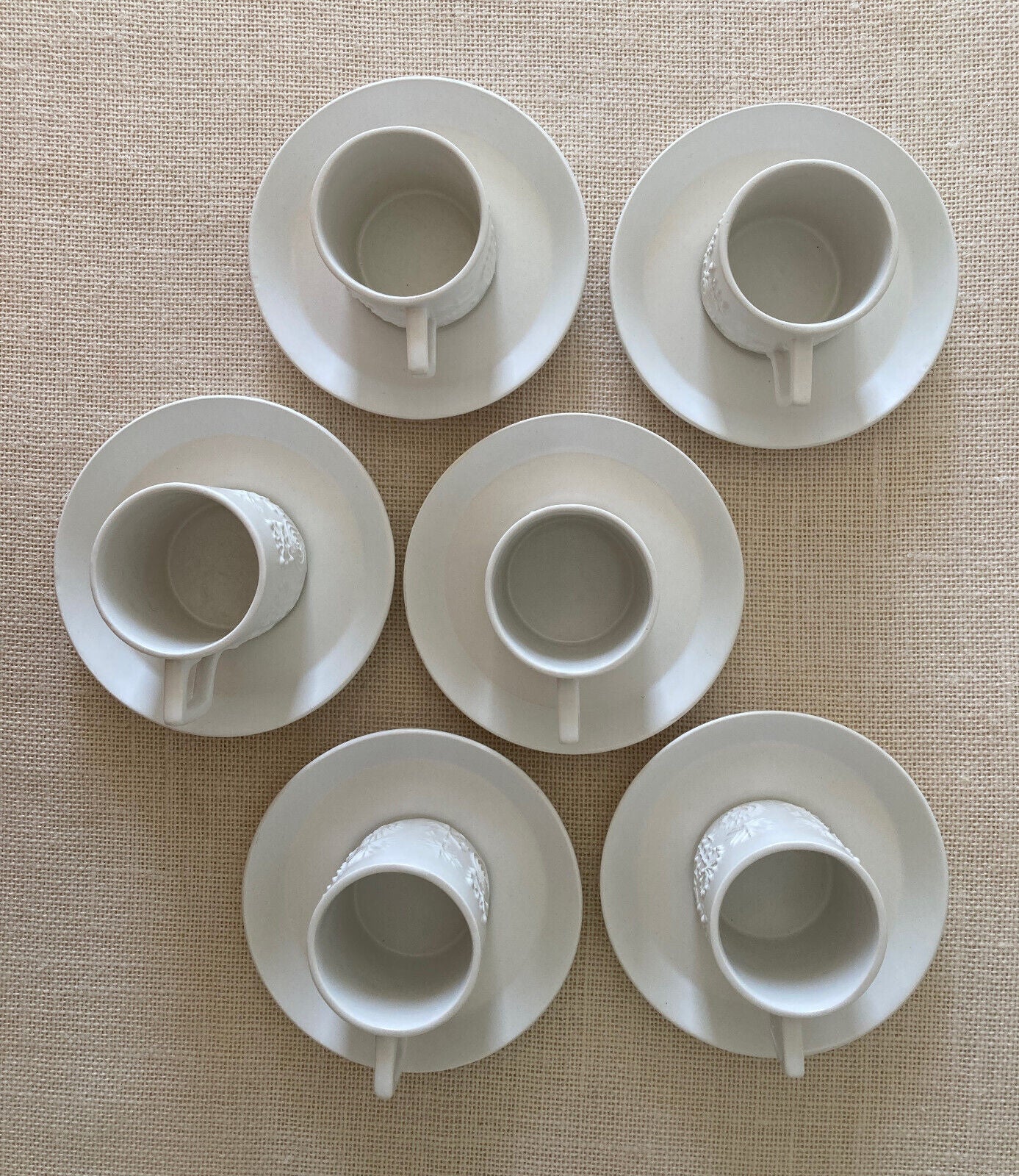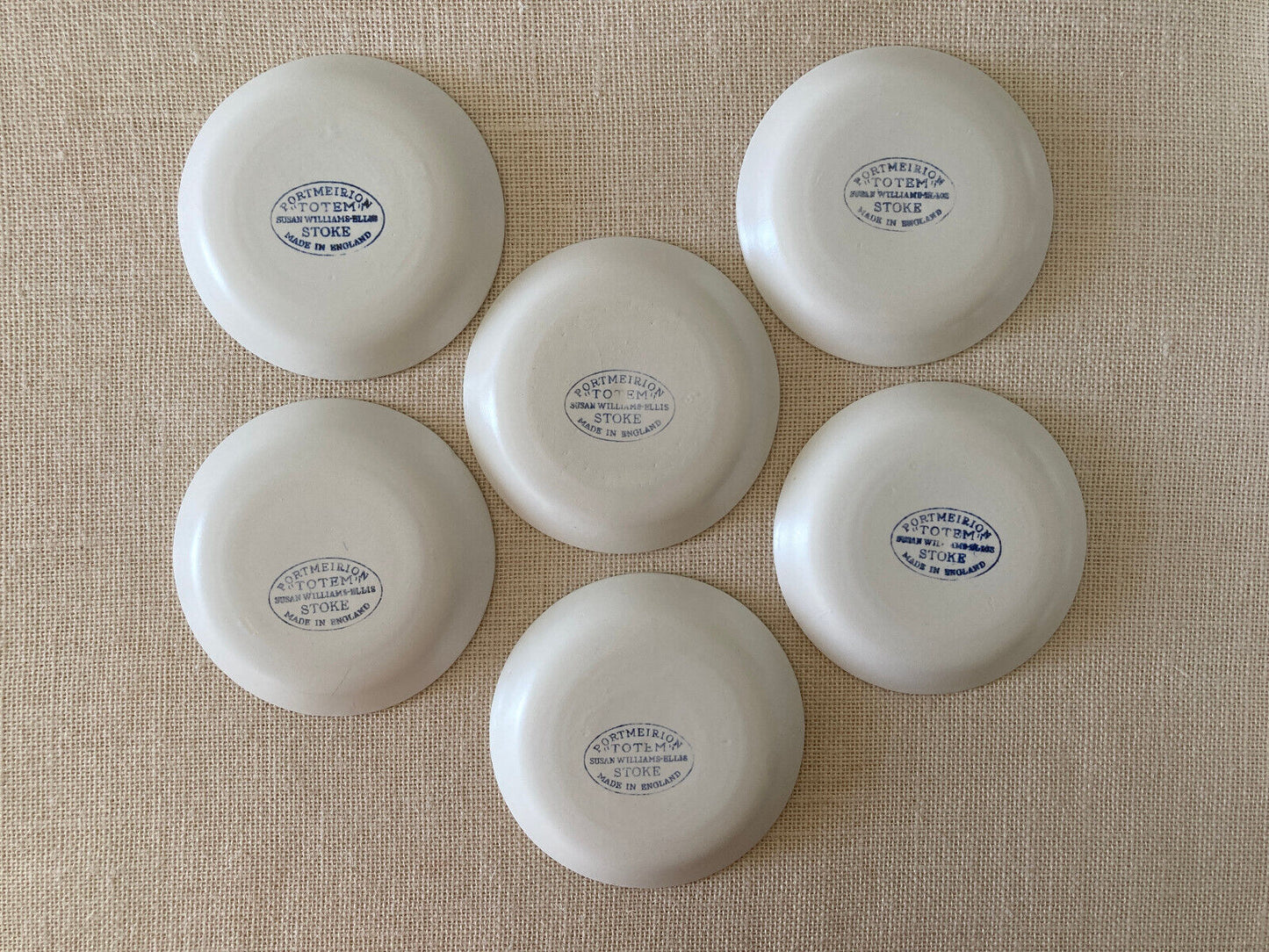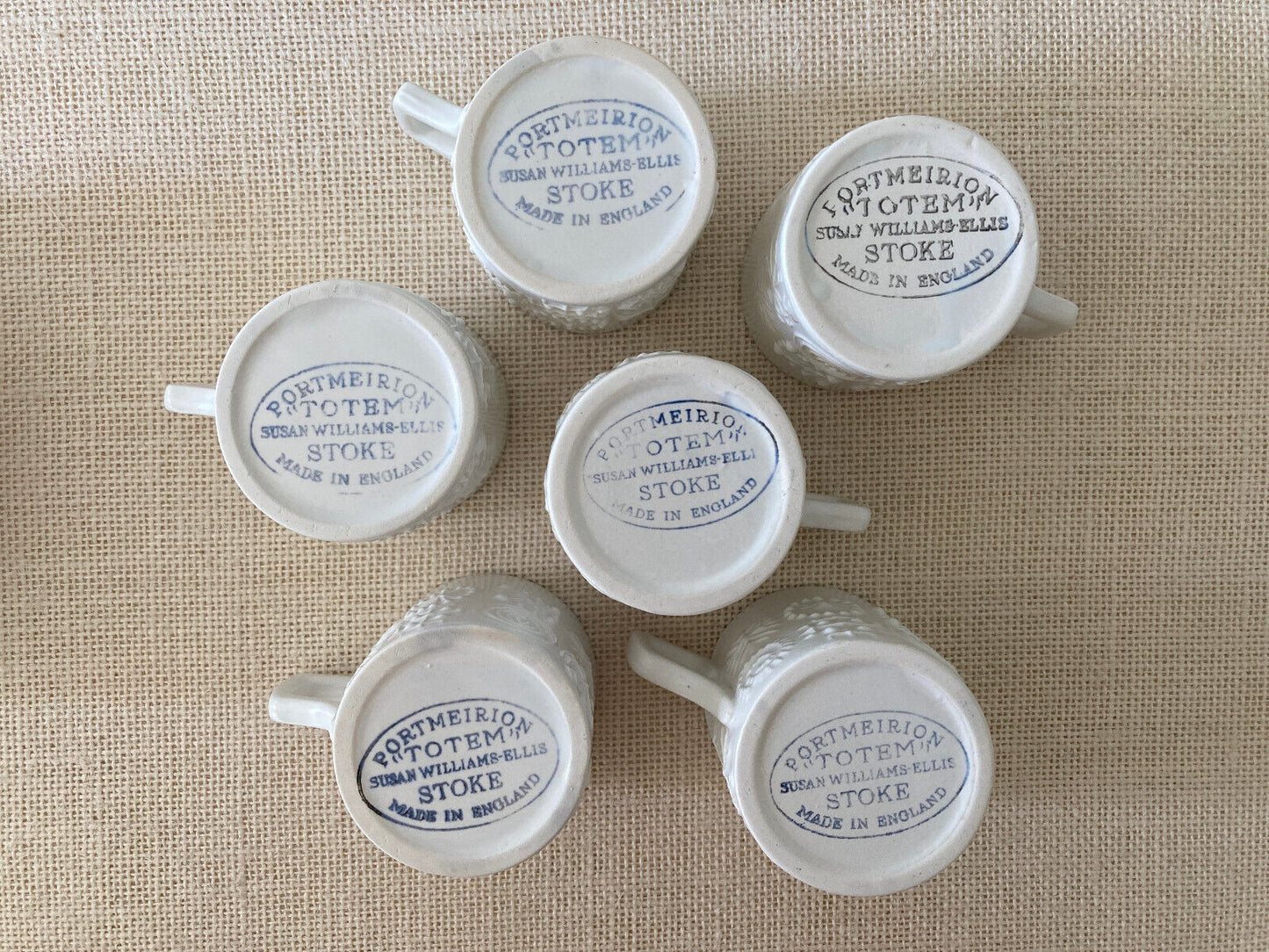Portmeirion
White Portmeirion Totem Demitasse Espresso Set by Susan Williams-Ellis
White Portmeirion Totem Demitasse Espresso Set by Susan Williams-Ellis
Couldn't load pickup availability
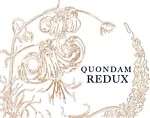
Notes on Susan Williams-Ellis:
Susan Williams-Ellis was born in England to eminent English architect, Sir Clough, known for developing the fantasy Welsh village of Portmeirion, and a writer mother (known as Amabel Strachey) who was a part of the famed Bloomsbury group of artists of the time. Williams-Ellis was determined to be an artist from an early age. She studied at Chelsea School of Art and Chelsea Polytechnic in the 1940s, focusing on ceramics and studying under sculptor Henry Moore and painter Graham Sutherland.She married Euan in 1945 and moved to Whales in 1948, to assist with management of her father's Portemeirion village. By 1953, she and her husband had taken over running the souvenir shop and by 1961 were managing the entire village and had opened another gift shop in London. Williams-Ellis, having kept up her ceramics design activities, acquired 2 run-down pottery operations in the early 60s in nearby Stoke-on-Trent, and with her designs and their management transformed them into one of the most successful ceramic operations in Whales. Their success was attributed to their focus on creating a lifestyle brand which included casual tableware, housewares and gifts. William-Ellis drew inspiration for her designs from sculpture, nature, literature. Her 1960s designs were destinctly modern and drew from many had made and cultural motifs. In the 1970s, inspired by illustration plates from an antiquarian natural history book dated 1817, she came up with the company's most successful pattern: Botanic Garden, a pattern that remains popular despite its variation in motifs from set to set. Williams-Ellis continued to paint and draw well into her 80's, generating new designs from underwater life and ancient civilizations. She died in 2007 but the company continues, producing new patterns as well as carrying much of the Botanic Garden line.
Share

